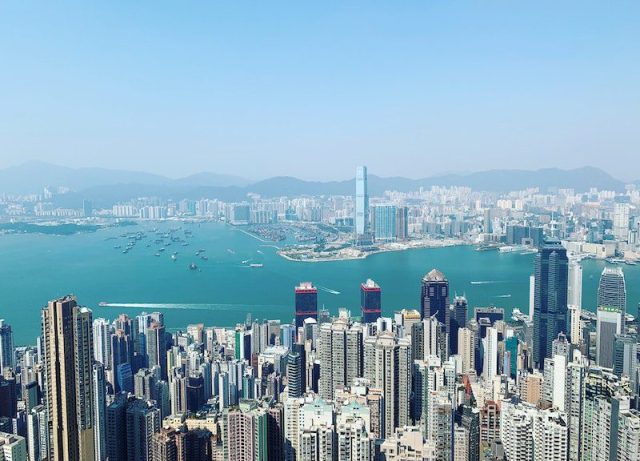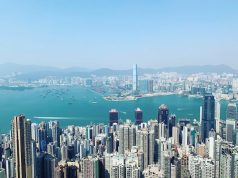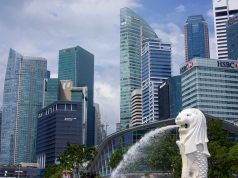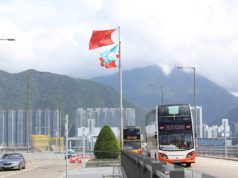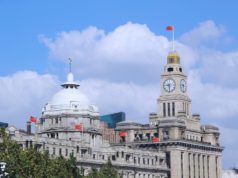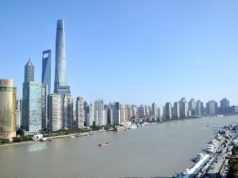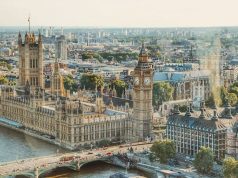Hong Kong Lists 5 Domestic Systemically Important Authorized Institutions for 2024: HSBC, Bank of China, Standard Chartered, Hang Seng Bank & ICBC
3rd January 2024 | Hong Kong
The Hong Kong Monetary Authority (HKMA) has listed 5 Domestic Systemically Important Authorized Institutions (D-SIBs) as of 1st January 2024 – 1) HSBC, 2) Bank of China, 3) Standard Chartered, 4) Hang Seng Bank and 5) ICBC. HKMA: “Under the D-SIB framework, each of the authorized institutions designated as a D-SIB will be required to include a Higher Loss Absorbency (HLA) requirement into the calculation of its regulatory capital buffers within a period of 12 months after the formal notification of its designation. The HLA requirement applicable to a D-SIB (expressed as a ratio of an authorized institution’s Common Equity Tier 1 (CET1) capital to its risk-weighted assets as calculated under the Banking (Capital) Rules) ranges between 1% and 3.5% (depending on the assessed level of the D-SIB’s systemic importance). Compared to the list of D-SIBs published on 30 December 2022, there is no change to the HLA requirements applied to the designated D-SIBs.” Systemically Important Authorized Institutions (SIBs) are banks whose impact, in the event of distress or failure, could cause significant disruption to the financial system and ultimately, the broader economy. The D-SIB framework in Hong Kong is based on the 4 assessment criteria: size, interconnectedness, substitutability and complexity. More info below:
“ Hong Kong lists 5 Domestic Systemically Important Authorized Institutions for 2024: HSBC, Bank of China, Standard Chartered, Hang Seng Bank & ICBC “
Systemically Important Authorized Institutions (SIBs) are banks whose impact, in the event of distress or failure, could cause significant disruption to the financial system and ultimately, the broader economy. In recognition of the additional risks posed by SIBs, they are subject to specifically tailored regulatory and supervisory measures, including capital surcharges in the form of higher loss absorbency (HLA) capital buffers; more intensive supervision (particularly in areas such as risk management and governance) and prioritised recovery and resolution planning. The Monetary Authority is empowered under the Banking (Capital) Rules to designate authorized institutions (AIs) incorporated in Hong Kong as global systemically important AIs (G-SIBs) or domestic systemically important AIs (D-SIBs) (collectively as SIBs) and to determine the associated HLA requirements. The assessment methodology to identify G-SIBs adopts the Basel Committee on Banking Supervision’s (BCBS) G-SIB framework. Currently there is no G-SIB headquartered and incorporated in Hong Kong. The D-SIB framework in Hong Kong is based on the four assessment criteria drawn from the BCBS’s D-SIB framework, namely size, interconnectedness, substitutability and complexity. The identification of D-SIBs locally consists of a two-step process. The first step is to draw up a preliminary indicative list of D-SIBs based on the quantitative scores calculated using the factors and a set of indicators. The second step involves the exercise of supervisory judgement to serve as a complement to the quantitative assessment process.
Hong Kong Lists 5 Domestic Systemically Important Authorized Institutions for 2024: HSBC, Bank of China, Standard Chartered, Hang Seng Bank & ICBC

29th December 2023 – The Hong Kong Monetary Authority (HKMA) has completed its annual assessment of the list of Domestic Systemically Important Authorized Institutions (D-SIBs). Based on the assessment results, the list of authorized institutions designated as D-SIBs remains unchanged compared to the list of D-SIBs published by the HKMA on 30 December 2022. The latest list of D-SIBs is shown in the Annex.
Under the D-SIB framework, each of the authorized institutions designated as a D-SIB will be required to include a Higher Loss Absorbency (HLA) requirement into the calculation of its regulatory capital buffers within a period of 12 months after the formal notification of its designation. The HLA requirement applicable to a D-SIB (expressed as a ratio of an authorized institution’s Common Equity Tier 1 (CET1) capital to its risk-weighted assets as calculated under the Banking (Capital) Rules) ranges between 1% and 3.5% (depending on the assessed level of the D-SIB’s systemic importance). Compared to the list of D-SIBs published on 30 December 2022, there is no change to the HLA requirements applied to the designated D-SIBs. Further details about the decision can be found on the HKMA website (Systemically Important Authorized Institutions (SIBs)).
Background
1. D-SIB framework in Hong Kong
The Banking (Capital) Rules and the HKMA’s regulatory framework for D-SIBs follow the provisions in “A framework for dealing with domestic systemically important banks” issued by the Basel Committee on Banking Supervision in October 2012, by enabling the Monetary Authority (i) to designate an authorized institution as a D-SIB if the Monetary Authority considers the authorized institution to be of systemic importance in the context of the Hong Kong banking and financial system and (ii) to require an authorized institution designated as a D-SIB to be subject to an HLA capital buffer. The rationale for imposing an HLA requirement on D-SIBs is to reduce any probability of them becoming non-viable. This is considered both prudent and justified in view of the greater impact that they could have, in the unlikely event of their failure, on the domestic financial system and the local economy more broadly.
2. HLA requirement for authorized institutions designated as D-SIBs
The Monetary Authority is empowered under sections 3U and 3V of the Banking (Capital) Rules to designate D-SIBs and to determine an HLA requirement for each of these D-SIBs by reference to the degree of domestic systemic importance which the Monetary Authority assesses them to bear. To achieve this aim, the HKMA’s regulatory framework for D-SIBs provides for authorized institutions designated as D-SIBs to be allocated to different HLA “buckets”. This differentiated approach reflects the diversified nature and varying degrees of systemic importance of authorized institutions in Hong Kong.
- The designated D-SIBs must apply the HLA in the calculation of their regulatory capital buffers within 12 months of the formal notification of their designation. There are five HLA buckets in total ranging from 1% to 3.5%. While only the first four buckets (i.e. from 1% to 2.5%) have been populated so far, the framework includes an empty 3.5% bucket to encourage D-SIBs to refrain from becoming even more systemically important.
- The HLA applied to a D-SIB serves (together with the Countercyclical Capital Buffer) as an extension of the Basel III Capital Conservation Buffer. Accordingly, if and when a D-SIB’s CET1 capital ratio falls within the extended buffer range, the D-SIB will be subject to restrictions on the discretionary distributions it may make. The effect of this is that D-SIBs will be required to retain earnings in order to bolster their regulatory capital.
Sign Up / Register
Caproasia Users
- Manage $20 million to $3 billion of assets
- Invest $3 million to $300 million
- Advise institutions, billionaires, UHNWs & HNWs
Caproasia Platforms | 11,000 Investors & Advisors
- Caproasia.com
- Caproasia Access
- Caproasia Events
- The Financial Centre | Find Services
- Membership
- Family Office Circle
- Professional Investor Circle
- Investor Relations Network
Monthly Roundtable & Networking
Family Office Programs
The 2025 Investment Day
- March - Hong Kong
- March - Singapore
- July - Hong Kong
- July - Singapore
- Sept- Hong Kong
- Sept - Singapore
- Oct- Hong Kong
- Nov - Singapore
- Visit: The Investment Day | Register: Click here
Caproasia Summits
- The Institutional Investor Summit
- The Investment / Alternatives Summit
- The Private Wealth Summit
- The Family Office Summit
- The CEO & Entrepreneur Summit
- The Capital Markets Summit
- The ESG / Sustainable Investment Summit











